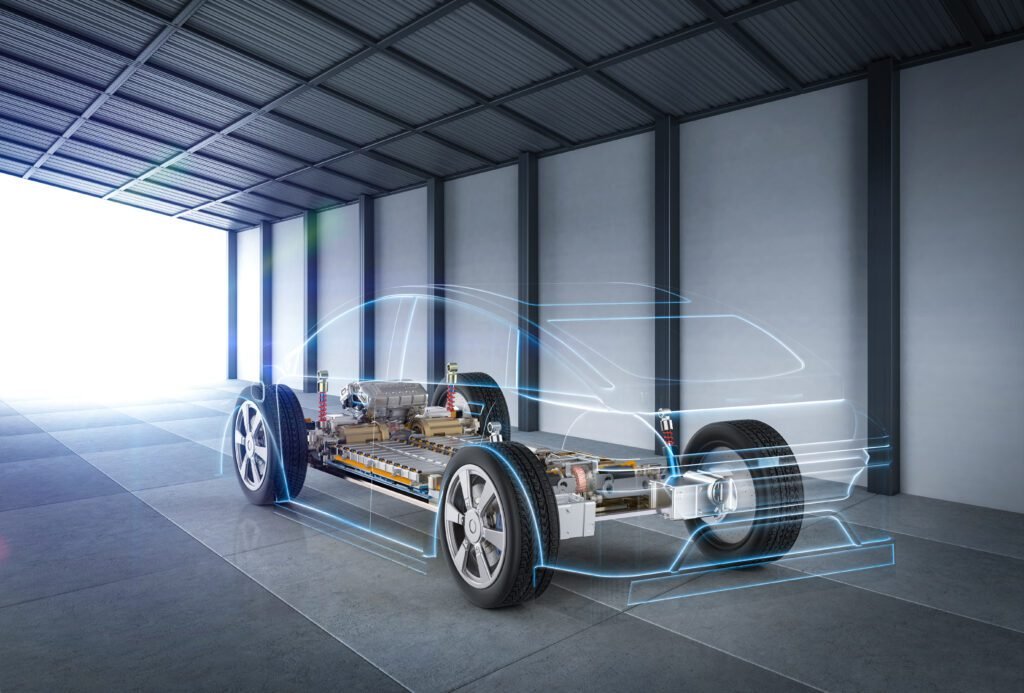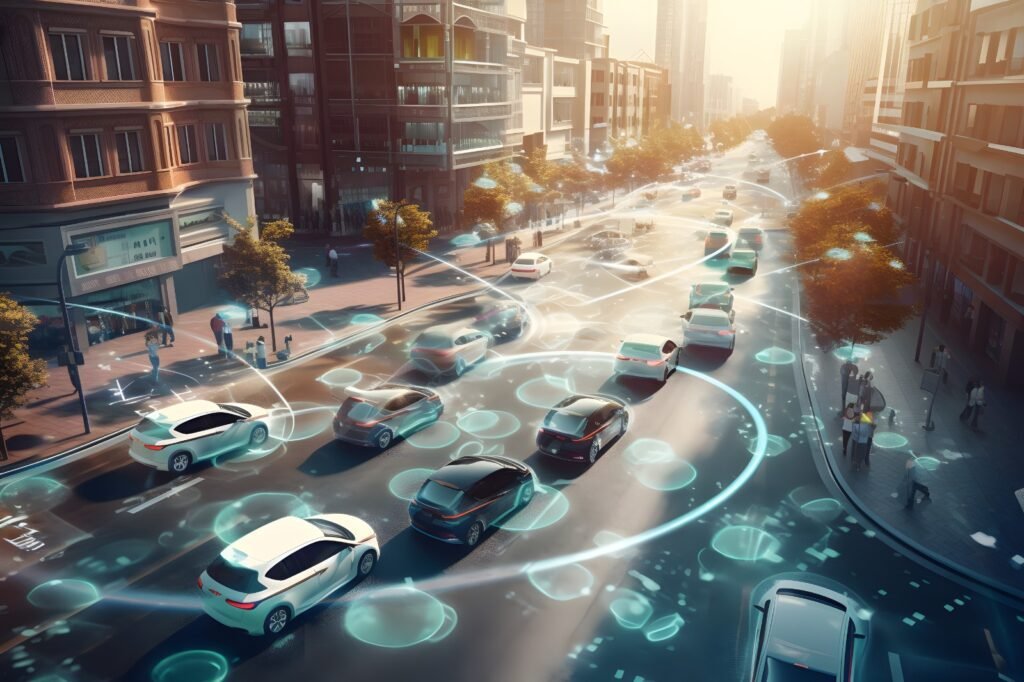Electric Vehicles (EVs) have emerged as a possible alternative to traditional petrol powered vehicles as we advance toward sustainable future transportation alternatives. The full promise of EVs, however, depends heavily on another game-changing technology, such as Artificial Intelligence (AI). In this blog, we’ll look at the role of AI in electric vehicles and how it affects various aspects of electric mobility.
The Importance of Artificial Intelligence in EVs
Because of its ability to transform every aspect of electric vehicle technology, AI occupies an exclusive spot in the future of EVs. AI is helping to make EVs more efficient, convenient, and accessible by enhancing battery management and enabling self-driving capabilities.

Battery Management and Driving Patterns

Maximising battery performance and longevity is a significant challenge in EV technology. In this regard, AI has proven to be a game changer. AI optimises battery charging and discharging cycles using complex algorithms and real-time data analysis. Tesla’s Autobidder, for example, predicts electricity costs using artificial intelligence, allowing EV owners to charge their vehicles at the most cost-effective periods, optimizing their driving patterns.
Self-Driving Vehicles

The role of AI in self-driving EVs is possibly the most interesting and transformational. Companies such as Waymo and Tesla have led the way in the development of self-driving vehicles. These vehicles can sense their environment, make real-time decisions, and handle safely thanks to AI-powered sensors, cameras, and machine learning algorithms. Self-driving electric vehicles have the potential to transform transportation by lowering accidents and congestion while increasing accessibility.
AI and Predictive Maintenance

Another critical application in the EV ecosystem is AI-driven predictive maintenance. AI algorithms continuously monitor the performance of the vehicle, recognizing possible difficulties before they become big concerns. This not only protects safety, but it also lowers maintenance costs and downtime, making EVs more dependable.
Range of Electric Vehicles

Potential EV purchasers frequently express range anxiety. To optimise energy usage, AI analyses driving habits, weather conditions, and traffic data. EVs, such as the Nissan Leaf, use artificial intelligence to compute the most economical route and provide real-time range predictions, reducing range anxiety.
Increased Security

The role of AI is to improve EV safety with technologies such as adaptive cruise control, lane-keeping assistance, and automatic emergency braking. Tesla’s Autopilot, for example, employs AI to provide semi-autonomous driving capabilities, lowering the chance of collisions.
The User Experience

AI-powered infotainment systems and voice assistants are revolutionising the EV user experience. Artificial intelligence (AI) is used in systems such as Mercedes-Benz’s MBUX to interpret and respond to natural language commands, resulting in a more intuitive and convenient interface for drivers and passengers.
AI-Powered EV Examples

Several automakers have used AI into their EV offerings. As an example:
Tesla’s Autopilot and Full Self-Driving (FSD) technologies are outstanding examples of self-driving technology powered by AI.
The Audi e-tron uses artificial intelligence (AI) for predictive efficiency assistance, which optimises driving behaviour to boost range.
The Mustang Mach-E is equipped with an AI-powered infotainment system that learns user preferences over time.
AI’s Advantages in Automobiles
AI integration in EVs has various advantages-
AI-powered safety measures reduce accidents and improve overall road safety.
AI improves energy use, enhancing the range and efficiency of EVs.
Convenience- Voice assistants and infotainment devices make driving more fun and less stressful.
Savings on maintenance and operations: Predictive maintenance and energy optimization minimise maintenance and operational costs.
Conclusion
Artificial intelligence is helping to shape the future of electric vehicles. It has an undisputed impact on battery management, self-driving capabilities, predictive maintenance, range optimization, safety enhancement, user experience, and charging infrastructure. As technology advances, artificial intelligence (AI) will play an increasingly important role in making EVs more efficient, accessible, and environmentally benign. The combination of AI and EVs has the potential to change the way we commute and the automotive industry as we know it.



